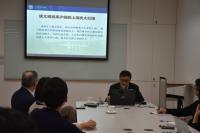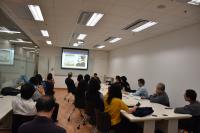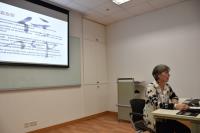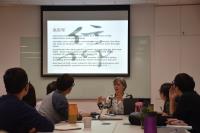1 December 2017
Jewish Refugees and Shanghai during World War II
On December 1, Professor Wang Jian, Professor of History and International Political Economy and Director of the Institute of History at the Shanghai Academy of Social Sciences, recounted in detail the story of Jewish refugees that fled Europe for Shanghai during the Second World War. Making use of newly available historical material, Prof. Wang painted a detailed picture of how the refugees reached Shanghai in the midst of worldwide conflict and their experiences after finding shelter in the war-torn city. Further topics discussed in the presentation included an account of the Jewish refugees' living conditions, the reception they received from the Japanese authorities and their interactions with the local population.
7 December 2017
Is China a Post-Secular Society? The Appearance of Xinyang in Chinese Political Discourse
On December 7, the Centre welcomed Prof. Gerda Wielander, Associate Professor in Chinese Studies and Head of Modern Languages and Cultures at the University of Westminster, London, for a talk on the question of whether China can be regarded as a Habermasian post-secular society.
To guide her inquiry, Prof. Wielander chose to analyse the uses of the word faith (信仰, xinyang) in political discourse and identify the degree to which its presence in official language reflects acknowledgment of religion's centrality in modern China. In addition, the presentation examined the Habermas-derived hypothesis that the usage of xinyang corresponds to two parallel processes: the normalization of religious beliefs on the basis of "faith" and the institutionalization of secularism in its transition to the official agenda.
Finally, Prof. Wielander demonstrated how xinyang is employed to differentiate between China's self-projections in the internal and external sphere, allowing it to adopt, respectively, a secularist as well as a cultural relativist discourse.









